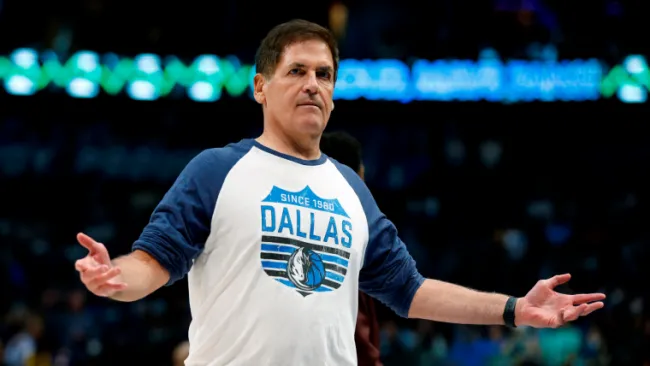Mark Cuban’s Mavericks Sale: Why He Sold, Luka Dončić Trade Reaction, and His Lasting Legacy
Mark Cuban’s shocking decision to sell his majority stake in the Dallas Mavericks in late 2023 marked the end of an era for the franchise. After 23 years of hands-on ownership, Cuban stepped back, citing family priorities and the NBA’s shifting business landscape. But just as fans were adjusting to the new leadership, the team made another stunning move—trading Luka Dončić to the Los Angeles Lakers. Even Cuban himself was caught off guard. What led to these major changes, and what does Cuban’s legacy mean for the future of the Mavericks?
Why Did Mark Cuban Sell the Dallas Mavericks?
Mark Cuban, the outspoken billionaire who turned the Dallas Mavericks into an NBA powerhouse, stunned the basketball world when he sold his majority stake in late 2023. His decision stemmed from three key factors:
- Family Comes First: Cuban wanted to protect his children from the intense scrutiny that comes with team ownership, especially in the age of social media.
- A Changing NBA Landscape: With the league placing greater emphasis on real estate and arena development—areas outside his expertise—Cuban felt the Mavericks would be better served by owners with experience in large-scale business ventures. The Adelson family, known for their casino empire, fit that profile.
- Leaving on His Terms: Cuban ensured a smooth transition, retaining a minority stake and the title of “alternate governor,” allowing him to stay involved in basketball operations.
The Sale: Timeline and Financials
- When: Cuban finalized the deal in December 2023, ending his 23-year tenure as the team’s principal owner.
- How Much: The sale valued the Mavericks at $3.5 billion, a staggering return on Cuban’s original $285 million investment in 2000. The new majority owners, Miriam Adelson and her son-in-law Patrick Dumont, took control of the franchise’s business and basketball decisions.
Mark Cuban’s Reaction to the Luka Dončić Trade
In February 2025, the Mavericks shocked the NBA by trading 25-year-old superstar Luka Dončić to the Los Angeles Lakers in exchange for Anthony Davis. Fans and analysts were left bewildered—including Cuban himself.
- Cuban’s Confusion: Former NBA player Chandler Parsons revealed that when he texted Cuban, “I’m so confused,” Cuban replied, “That makes two of us.”
- No Say in the Deal: As a minority owner, Cuban had no control over basketball decisions. The trade was orchestrated by the Adelson ownership group and GM Nico Harrison, who prioritized financial flexibility and a stronger defensive identity.
- Fan Outrage: Many fans were frustrated by Cuban’s muted response—simply tweeting “MFFL” (Mavericks Fan For Life). The reaction felt out of character for someone who once famously claimed he’d “choose Luka over his wife.”
The Aftermath and Cuban’s Legacy
- A New Era in Dallas: The Mavericks are now betting on Anthony Davis and Kyrie Irving to lead the franchise. While Cuban remains involved as a minority owner, his influence has diminished significantly.
- A Lasting Impact: Cuban’s tenure saw the Mavericks win their first NBA championship in 2011, make three Finals appearances, and develop a reputation as a player-friendly organization. His deep emotional connection to the team—even admitting he cried over trades—set him apart from traditional owners.
- Unanswered Questions: Analysts remain skeptical about the Dončić trade, with some calling it “so indefensible it belongs in a parallel universe.” Meanwhile, Cuban has shifted his focus to his other ventures, including Shark Tank and philanthropy.
Conclusion
Mark Cuban’s sale of the Mavericks marked the end of an era defined by passion and innovation. While his confusion over the Dončić trade underscores the challenges of stepping away from control, his legacy as a transformative owner remains intact. The big question now: Will the new leadership’s gamble pay off—or become one of the biggest mistakes in franchise history?
